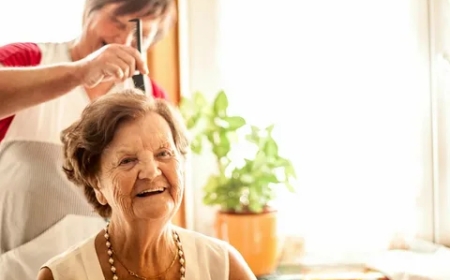The Dispositionalism Model of Care: A Holistic Approach to Pain Management
Explore how the Dispositionalism model transforms MSK Care with a holistic, patient-centered approach to pain management.

Pain isn't just physicalit's personal. For many of us, aches and discomfort become daily visitors we learn to live with. But what if we could understand and treat pain in a way that considers more than just the body? Thats where Dispositionalism, a groundbreaking approach to MSK Care (Musculoskeletal Care), enters the picture. Think of it like zooming out on Google Mapsnot just seeing the street you live on, but understanding how your whole city connects. Dispositionalism zooms out on pain, looking at the person as a whole, not just the part that hurts.
What is Dispositionalism in MSK Care?
Dispositionalism is a holistic approach to understanding health and pain. Instead of focusing only on symptoms (like back pain or joint stiffness), it looks at a persons dispositionstheir tendencies, habits, environment, emotions, and lifestyle. In MSK Care, this means were not just treating muscles and bones. Were treating you.
Its like a mechanic who doesn't just replace a flat tire but checks why it went flat in the first place.
The Roots: Why Traditional Pain Management Falls Short
Most traditional care systems follow a fix the part approach. You have knee pain? Lets get an MRI. Maybe some painkillers or a steroid injection.
But this method often:
-
Ignores emotional or social stress.
-
Overlooks lifestyle factors like sleep or posture.
-
Doesnt prevent pain from coming back.
Its like painting over rust instead of treating the corrosion.
Understanding the Whole Person Perspective
In dispositionalism, youre not just a set of symptoms. Your mindset, daily habits, and relationships all affect how you experience pain.
Imagine your body is an orchestra. If one instrument (like your shoulder) is out of tune, the entire performance suffersbut the solution isnt always to just fix the one instrument. Sometimes, its about how they all work together.
Key Pillars of the Dispositionalism Model
Lets break down the four essential parts of this care model:
-
Individual Context No two people experience pain the same way.
-
Biopsychosocial Approach Physical, emotional, and social aspects all matter.
-
Patient Empowerment The patient plays an active role in recovery.
-
Sustainable Care Focused on long-term well-being, not quick fixes.
These pillars support better MSK Care outcomes by creating a balanced support system.
Mind and Body: The Intertwined Relationship
Ever felt more pain when you're stressed or sad? Thats not your imagination.
Stress tightens muscles, disrupts sleep, and magnifies pain perception. Dispositionalism tackles both mind and body, sometimes combining physical therapy with mindfulness or therapy.
Because pain isnt just in your backits also in your brain.
Environment and Emotions: Hidden Influencers
Where you live, who you live with, and even your job can affect how your body feels. If your environment constantly triggers stress, your healing can be delayed.
Dispositionalism takes this into account. It may involve lifestyle tweaks, ergonomic changes, or emotional supportbecause healing happens faster in a safe, supportive space.
Real-World Examples of Dispositional MSK Care
Lets say two patients have identical lower back pain. One is a young mom juggling three kids and a full-time job. The other is a retired man living alone.
Same diagnosis, different dispositions.
Dispositional care for the mom might include:
-
Stress management techniques
-
Home exercise plans
-
Sleep improvement strategies
For the retired man, care may focus on:
-
Social interaction
-
Gentle movement
-
Mental health support
Same pain. Different paths to healing.
Why Patients Respond Better to Holistic Models
Studies show that people receiving holistic, person-centered care report:
-
Higher satisfaction
-
Lower recurrence of pain
-
Better mental health
When you feel heard and understood, your body responds better. It's simple, really: care feels more like care.
How Dispositionalism Supports Long-Term Healing
Painkillers wear off. Surgeries heal tissues, but not always the root cause.
Dispositionalism helps uncover deeper patternspoor posture, chronic stress, weak muscles, or bad habitsand works to rewire them for lasting recovery.
Think of it as teaching someone to fish instead of giving them a fish.
From Reactive to Proactive Pain Management
Traditional care waits until something goes wrong.
Dispositionalism says: Lets get ahead of the problem.
By understanding your tendencies, this model can help you prevent injuries before they happen. Whether its modifying your workout, changing how you sit at work, or simply stretching every daythese are proactive moves.
Healthcare Professionals Role in Dispositionalism
Doctors, physiotherapists, and even mental health professionals work together in this model. But their role shifts from fixers to guides.
They:
-
Listen more deeply.
-
Ask better questions.
-
Build personalized plans.
-
Empower patients.
Its a partnership, not a prescription.
Integrating Lifestyle Changes with MSK Treatment
One of the strengths of Dispositionalism in MSK Care is its flexibility. Small lifestyle changes can create big results:
-
Sleep: Poor sleep worsens pain sensitivity.
-
Nutrition: Inflammation can be influenced by diet.
-
Movement: Gentle exercises aid healing and boost mood.
-
Hydration: Dehydrated muscles cramp more.
These arent extras. Theyre essential.
The Role of Communication and Empathy
Lets be honestbeing in pain is frustrating. Feeling dismissed makes it worse.
Dispositionalism encourages providers to truly listen, show empathy, and communicate in ways that build trust.
Because when patients feel respected, they engage more in their healing.
Challenges and Criticisms
Like all approaches, Dispositionalism isnt perfect.
-
It requires more time per patient.
-
Not all providers are trained this way.
-
Insurance systems often prefer quicker, cheaper treatments.
But as awareness grows, so does demand for more meaningful, holistic care.
A New Era for MSK Care: Final Thoughts
Dispositionalism is more than a modelits a mindset shift. It reminds us that people are more than their pain. That healing isnt always about medicine, but about understanding.
By treating the whole person, not just the symptoms, MSK Care becomes more effective, compassionate, and lasting.
If youve ever felt unheard or stuck in a loop of recurring pain, Dispositionalism might be the fresh start you need.
FAQs
1. How does Dispositionalism differ from traditional MSK Care?
Dispositionalism focuses on the whole personemotions, lifestyle, habitswhile traditional care often targets just the symptoms.
2. Can this model be used alongside other treatments?
Absolutely. Dispositionalism works well with physical therapy, medication, and even surgery, complementing them with holistic insight.
3. Is Dispositionalism only for chronic pain?
No. While its great for chronic issues, its also useful for acute injuries by helping patients avoid recurrence and heal smarter.
4. What type of professionals use the Dispositionalism model?
Physiotherapists, GPs, chiropractors, psychologists, and wellness coaches are increasingly integrating this model into their practice.
5. How can I find a care provider who uses this approach?
Look for professionals who emphasize whole-person care, ask in-depth questions, and involve you actively in your treatment plan.































